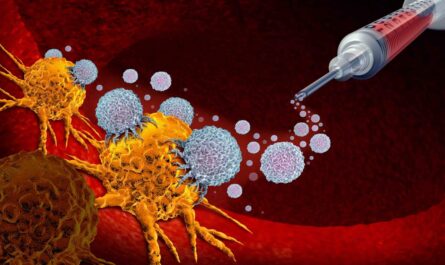New research conducted by scientists at the Institut Pasteur has shown that smoking has both short-term and long-term effects on the immune system. The study, which involved analyzing data from the Milieu Intérieur cohort of 1,000 healthy volunteers, revealed that even after quitting smoking, individuals still experience changes in their immune system that were acquired during their time as smokers. The findings, published in the journal Nature, provide important insights into the long-term impact of smoking on immunity.
The Milieu Intérieur cohort was established in 2011 to investigate the variability in immune responses among individuals. The cohort consisted of 1,000 healthy individuals aged 20 to 70, and the researchers aimed to identify the factors that contribute to differences in immune system effectiveness. While factors such as age, sex, and genetics are known to influence immune responses, the study aimed to uncover additional factors with significant impact.
Blood samples from individuals in the cohort were exposed to various microbes, and the researchers observed the immune response by measuring the levels of secreted cytokines. By analyzing the extensive dataset gathered from the cohort, the team identified three variables that had a significant influence on immune responses: smoking, latent cytomegalovirus infection, and body mass index.
Of these three factors, smoking was found to have the greatest impact on immune responses. Smokers showed heightened inflammatory responses to pathogens and impaired activity of immune cells involved in memory. Importantly, the study revealed that the inflammatory response returned to normal levels quickly after smoking cessation, but the effects on adaptive immunity persisted for 10 to 15 years.
This study is the first to demonstrate the long-term effects of smoking on immune responses. The researchers discovered that smoking disrupts not only innate immune mechanisms but also adaptive immune mechanisms. The similarities in immune profiles between smokers and ex-smokers led the team to suspect that epigenetic processes were involved. Further investigation revealed that differences in DNA methylation, which can modify the expression of genes involved in immune cell metabolism, were responsible for the long-term effects of smoking on immune responses.
These findings have significant implications for our understanding of the impact of smoking on immunity in both healthy individuals and those with various diseases. The study highlights the importance of maintaining a smoke-free lifestyle to prevent long-lasting changes to the immune system. Additionally, the identification of epigenetic mechanisms involved in the immune response to smoking opens up new avenues for potential interventions to mitigate the negative effects of smoking on health.
In conclusion, smoking has been shown to have detrimental effects on the immune system, both in the short-term and long-term. The study conducted by the Institut Pasteur provides valuable insights into the long-lasting impact of smoking on immunity and highlights the importance of smoking cessation for maintaining a healthy immune system. Further research in this area may lead to the development of interventions to minimize the negative effects of smoking on health.
*Note:
1. Source: Coherent Market Insights, Public sources, Desk research
2. We have leveraged AI tools to mine information and compile it



